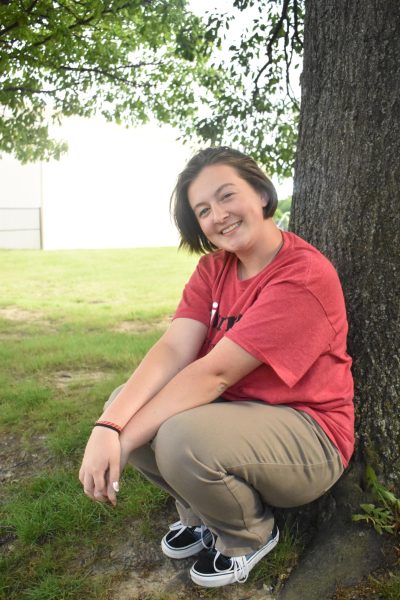Block schedule should be rearranged
December 12, 2016
As I was an eighth grader, sitting in the auditorium at what would eventually become my high school, I had the daunting task of scheduling the rest of my pre-collegiate educational career on a piece of green paper in my hands. Needless to say I was nervous and uncertain as to what I should take to prepare me for college and the rest of my life after that. One thing I still remember saying to my parents is, “When am I supposed to have time to take the electives and classes that I actually want to take.” Because the Core 40 Academic Honors Diploma requirements are so rigorous, and that students on that track often have multiple other activities that they are involved in, the school should adopt a different block schedule to allow for more elective periods.
Due to our modified block schedule that only allows for seven periods on a very confusing rotation, many students can’t find the time in their schedules to get involved during the school day. How many future artists, writers, and musicians have been silenced and diminished to nothing because they instead had to take a math, science, or history course that they were never going to use again in their entire lives? Albert Einstein once said, “Everyone is a genius, but if you judge a fish by its ability to climb a tree, it will live its whole life believing that it is stupid.” This makes us feel sorry for the fish, so why do we practice “judging a fish by its ability to climb a tree” in schools?
According to the National Center for Education Statistics, “Recent research suggests that participation in extracurricular activities may increase students’ sense of engagement or attachment to their school, and thereby decrease the likelihood of school failure and dropping out.” One of the statistics shows that out of those that were involved, 30.8 percent had a GPA of 3.0 or higher, while only 10.8 percent of those that weren’t involved did. If you participated in extracurriculars, you were 20 percent more likely to go and excel in college. If you excel in college, you are more likely to excel in life. If we had more people excelling in life and working good jobs, it would revitalize the American economy and lead to a better life for everyone, and it all starts with getting involved in extracurriculars.
Also, many students who are on the Academic Honors Diploma track are also very social and often work jobs on top of a rigorous homework and class load. We can’t find the time in our schedules to fit in extracurriculars, which means that you are weakening the opportunity for some of the best and brightest students to go to college and excel at life. If the school adopted a regular block schedule where students had eight periods and saw four a day, it would open up opportunities for students to get involved and for some to get some much needed reprieve from their hectic schedules.
Now some might say that one extra period is not going to make the difference. I can tell you for a fact that it does. Countless numbers of my friends when we do scheduling tell me that there’s always one more class they want to take that sometimes actually fits in their future career field, but since they have to take some other class that they are never going to use again, they can’t. How many students have been in the same situation before? If we adopt this policy and get more students involved, we can get more graduates succeeding and going on to do bigger and better things than any of us could ever imagine.








